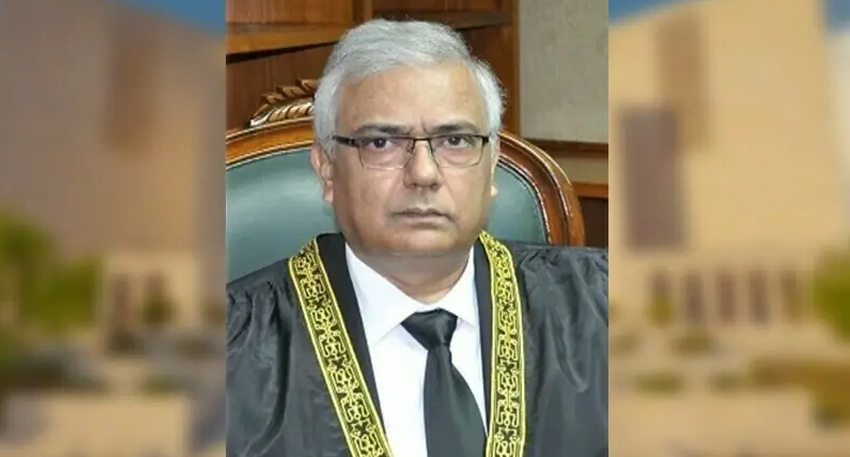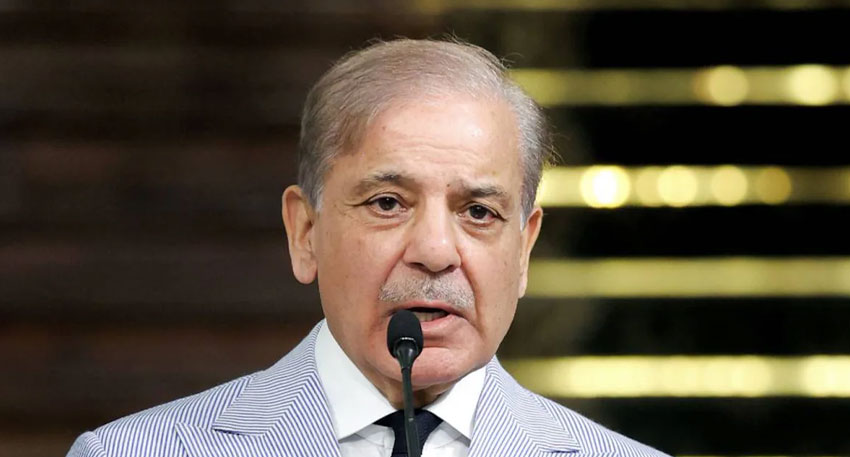
The Ministry of Law and Justice issued the official notification of Justice Aminuddin Khan’s appointment.
According to a statement issued by the Presidency on Thursday, the appointment was made on the advice of Prime Minister Shehbaz Sharif.
The notification state that the appointment was make under the Constitution’s Article No. 175A and 175C. Chief Juitce Aminuddin Khan will be the first Chief Juctice of the constitutional court.
Justice Aminuddin Khan previously headed the now-dissolved Constitutional Bench, made under the 26th amendment. President Zardari is scheduled to administer the oath of office to Justice Khan today (Friday) at the Aiwan-e-Sadr.
Justice Khan’s appointment follows the recent passage of the 27th Constitutional Amendment, which paved the way for significant reforms in the country’s judicial structure. The National Assembly and Senate both approved amendments to the Supreme Court (Practice and Procedure) Rules, effectively bringing an end to the system of permanent constitutional benches.
The bill was first introduced in the Senate earlier this week and was passed the same day. It was later referred to the National Assembly, which endorsed it with certain changes. The revised legislation was subsequently returned to the upper house for final approval on Thursday.
Also Read: CJP calls full court meeting to discuss 27th Amendment after judges’ letters and resignations
According to sources, the oath taking ceremony is likely to be held on Friday, where Justice Amin Uddin Khan will be sworn in as Chief Justice of the Federal Constitutional Court.
On the other hand, the names of Justice Amir Farooq and Justice Baqar Najfi are being considered for the judges of the Federal Constitutional Court.
Moreover, the names of Justice K.K. Agha and Justice Rozi Khan are also under consideration, while Justice Hassan Rizvi and Justice Shakil Ahmed are also being considered as judges of the court.
Earlier, Chief Justice of Pakistan (CJP) Yahya Afridi has called a full court meeting on Friday to discuss the 27th Constitutional Amendment.
Sources said that the Full Court session will be held before the Juma prayers, while three judges of the SC have written letters to the CJ requesting the session.
An agenda of the Full Court session has also surfaced. As per the agenda, the discussion will be held on the amendments to the SC Rules 2025. The session will be held at 2 pm on November 14.
The Full Court session will also consider the matters of the status of the Senior Advocates.
Who is Justic Aminuddin Khan?
Justice Aminuddin Khan was born on December 1, 1960, in Multan, to a family of lawyers. He received his early education in Multan, obtained a Bachelor’s degree in Philosophy in 1981, and completed his LLB from the University Law College, Multan, in 1984, followed by a diploma in Taxation Law.
Also Read: 27th Amendment: SC justices Mansoor Ali Shah, Athar Minallah tender resignations
He began his legal career in 1985, practicing alongside his father, Advocate Khan Sadiq Muhammad Ahsan. Justice Khan was enrolled as an advocate of the Lahore High Court in 1987 and later as an advocate of the Supreme Court in 2001.
Appointed to the Lahore High Court bench in 2011, Justice Khan gained recognition for efficiently resolving long-pending civil cases and delivering judgments that were often upheld by the Supreme Court. He served at the Bahawalpur, Multan, and Lahore benches before his elevation to the Supreme Court on October 21, 2019.
Notable among Justice Khan’s recent judgments is his dissenting note in the July 12 reserved seats verdict. Justice Khan was also part of the nine-member larger bench that reviewed the presidential reference filed against the hanging of former prime minister Zulfikar Ali Bhutto.
Khan has also made substantial contributions to legal education, serving as an examiner and lecturer at University Law College, Multan. Additionally, he has held roles on the Syndicate of several universities, including the University of Engineering and Technology, Lahore.




